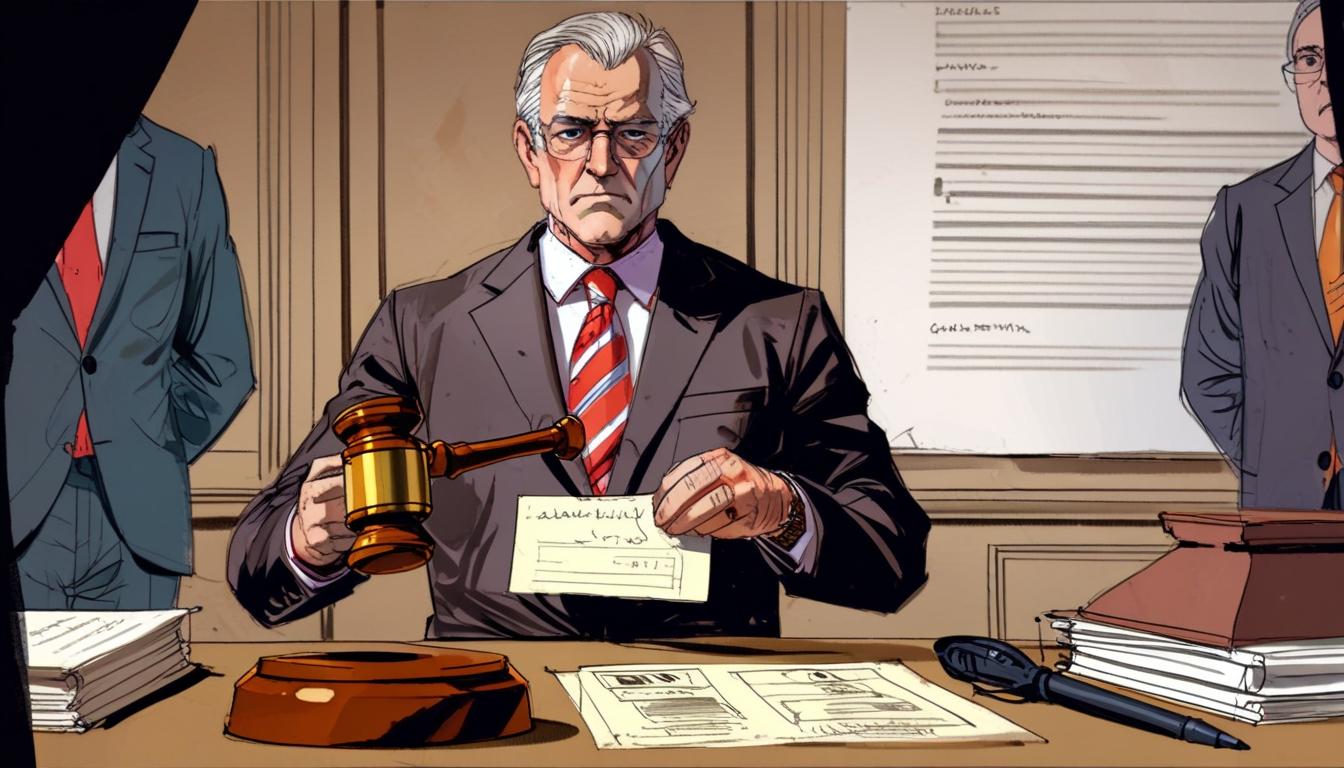Art Dealer Faces Serious Charges Linked to Terrorist Financing
Oghenochuko Ojiri, a prominent art dealer known for his appearances on BBC’s Bargain Hunt and Antiques Road Trip, has been charged with multiple offences related to terrorist financing. The Metropolitan Police have confirmed that the 53-year-old, based in west London, faces eight counts of failing to disclose information as required under section 21A of the Terrorism Act 2000. This situation represents a significant legal first, as he is the initial individual to be charged with this specific offence, highlighting an increasing focus on the intersection of the art trade and financial compliance.
Ojiri's charges encompass a timeframe from October 2020 to December 2021 and have been authorised by the Crown Prosecution Service following a thorough investigation led by the National Terrorist Financial Investigation Unit within the Metropolitan Police. This extensive probe also received backing from various institutions, including HMRC and the Treasury, underlining the seriousness of the allegations and the collaborative efforts necessary to address them.
According to the Metropolitan Police, disclosures of financial transactions are crucial in the fight against terrorism financing, especially as art transactions often involve significant sums of money that can potentially be exploited for illegal activities. The increasing scrutiny of the art market mirrors broader global efforts to counteract financial networks associated with terrorism. In Nigeria, for example, over 100 terrorist financiers have been prosecuted and convicted in recent years, showcasing a determined approach to disrupting the economic underpinnings of terrorist organisations like Boko Haram and ISWAP. These strategies include a focus on financial transparency and the prosecution of those who fail to comply with disclosure regulations.
In parallel, a Nigerian court recently froze 24 bank accounts suspected of terrorism financing, further amplifying the country's commitment to countering such activities through rigorous legal action. This commitment includes working with international partners, such as the United States, to safeguard financial systems against exploitation by terrorist actors. The collaboration encompasses a variety of initiatives aimed at securing financial transactions and ensuring compliance with anti-terrorism financing measures.
As Ojiri prepares to make his court appearance at Westminster Magistrates’ Court, the implications of his case extend beyond his personal circumstances. It raises critical questions about the responsibilities of those in the art and antiques sector to actively monitor and report suspicious activities, thereby ensuring that their profession does not inadvertently support illegal financial activities. The Ojiri Gallery has opted not to provide comments on this evolving situation, leaving the public awaiting further developments.
The case of Oghenochuko Ojiri serves as a stark reminder of the interplay between cultural sectors and issues of national security. As the art world becomes increasingly scrutinised, industry professionals may need to adopt more stringent compliance measures, echoing trends observed in other parts of the world aimed at disrupting financial networks that enable terrorism.
Reference Map:
- Paragraph 1 – [1], [2]
- Paragraph 2 – [1], [2]
- Paragraph 3 – [3], [4]
- Paragraph 4 – [5], [6]
- Paragraph 5 – [1]
Source: Noah Wire Services
